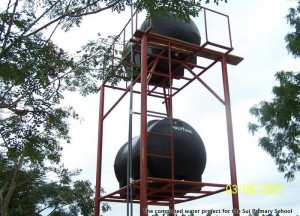Key Thematic Areas

ICED relies on a number of fundamental transversal actions – participatory action research; management of projects; provision of extension / advisory services; and capacity building – to positively influence sustainable development policies and programmes in Ghana and SSA. ICED has vast experience in applying the concepts of sustainability, innovation, productivity and efficiency to inform its interventions in six carefully targeted thematic areas:
- Small and Medium Scale Enterprises and Job Creation: ICED is committed to promoting and supporting these enterprises with a view to creating job and income earning opportunities, especially for young people and women in Ghana and other SSA countries.
- Sustainable Agriculture and Food Security: Food security through livelihood improvement programmes.
- Education: Improving teaching and learning in basic and secondary schools through the refurbishment of school blocks, the provision of teaching and learning materials, training of teachers, and provision of drinking water.
- Natural Resources, Environmental and Climate Change Management: Biodiversity conservation, promotion of domestic tourism, environmental education and livelihood improvement programmes
- Deploying the Circular Economy Approach: Facilitate organisations in SSA to transit from the traditional “take-make-dispose” linear economy model to the circular economy approach that promotes resource efficiency and long-term sustainability.
- Health, Water, Hygiene and Sanitation Services: Refurbishment of clinics in rural communities, provision of equipment, drugs and ambulances, potable drinking water and sanitation facilities, education on good hygiene and sanitation practices. Provision of quality drinking water and improved hygiene and sanitation services to deprived communities as well as basic and secondary schools.

